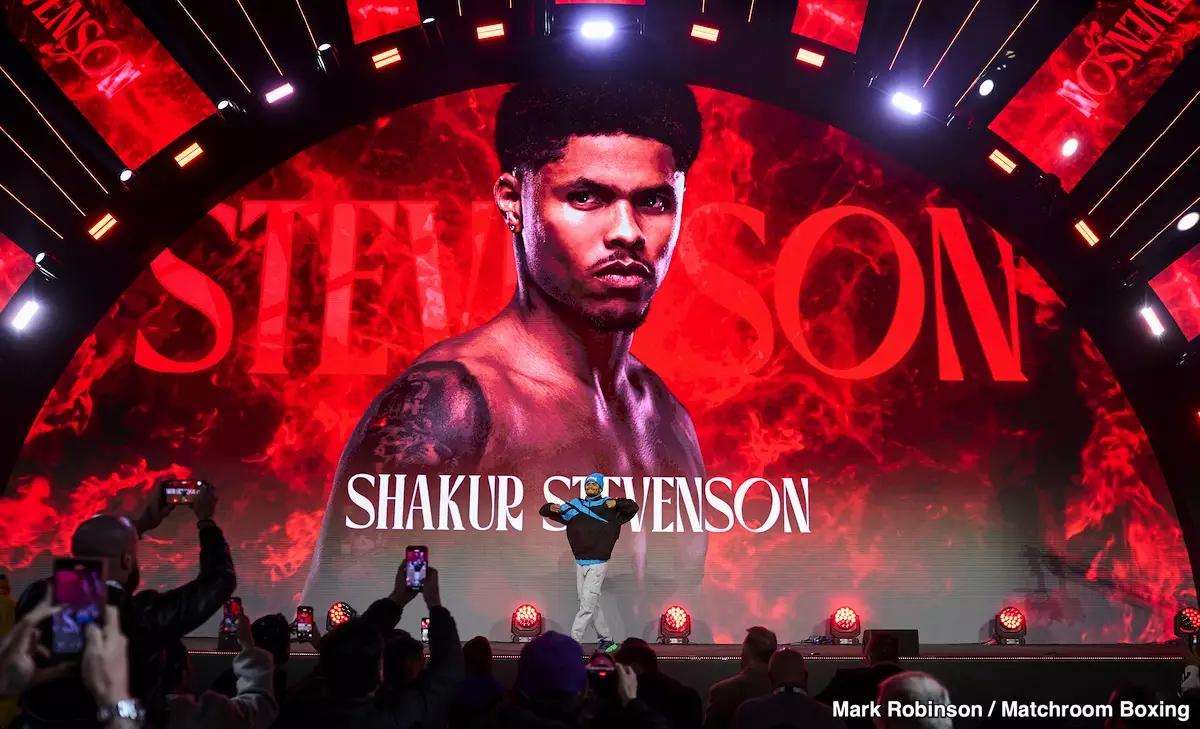In the lead-up to his highly anticipated fight on February 22nd in Riyadh, Shakur Stevenson, the reigning WBC lightweight champion, finds himself in an intriguing yet troubling situation. His replacement opponent, Josh Padley, is not a fighter that Stevenson knows well. He admits that his knowledge of Padley is minimal, having only observed a single round of his previous bouts. This raises questions about the organization and preparation that has gone into this matchup. In high-level professional boxing, familiarity with an opponent can be crucial, as understanding their style and strategy can significantly affect performance in the ring.
The decision to have Padley as the replacement instead of a more dangerous opponent, such as Jadier Herrera, reflects a strategic calculation by Promoter Eddie Hearn. The choice to opt for Padley, whose record stands at 15-0 with only four knockouts, could be seen as an attempt to protect Stevenson’s undefeated status. However, this strategy raises potential concerns about the integrity of the matchup. Critics argue that selecting a lesser opponent may undermine Stevenson’s reputation, suggesting that he is merely a product of hype rather than a legitimate champion. Hearn’s reasoning is clear; he does not want Stevenson to suffer a loss that could derail plans for a more significant bout against Gervonta Davis in the future.
The Weight Dilemma: A Challenge for Boxers
Additionally, the constraints put forth by the British Boxing Board of Control regarding weight checks create another layer of complexity. The situation suggests that finding a suitable replacement was a herculean task, as Padley had to meet specific weight requirements promptly. This presents a dilemma: to either choose a fighter from a different weight class or risk missing out on the opportunity altogether. Such obstacles are not uncommon in boxing, but they underscore the importance of pre-fight arrangements and thorough vetting of potential opponents.
Despite his minuscule knowledge about Padley, Stevenson remains confident. His training camp has prepared him for whatever challenge awaits in the ring. His statement, “I’m not no chump, and I’m not a guy that is going to take whatever either,” indicates a determined mindset. However, the disparity in skill levels raises questions about the competitiveness of this match. If Stevenson is to solidify his status as a top-tier fighter, facing challengers who pose a legitimate threat is paramount. Sitting back and banking on an easy victory against an underwhelming opponent could damage his credibility, making it difficult to secure high-stakes fights moving forward.
Future Implications: The Road to Mega Fights
Eddie Hearn’s vision to align Stevenson for a potential unification bout with Gervonta Davis hinges on the outcome of this fight against Padley. While a simplistic win against a lesser-known opponent might seem beneficial in the short term, it also risks creating a narrative fraught with skepticism about Stevenson’s prowess. To earn respect and establish himself as a legitimate champion, he needs to put forth compelling performances against worthy adversaries. As the landscape of the lightweight division continues to evolve, it remains crucial for fighters like Stevenson to navigate these challenges strategically while maintaining their reputations. Ultimately, while a win against Padley may serve immediate interests, its long-term ramifications could resonate throughout the rest of his career.

